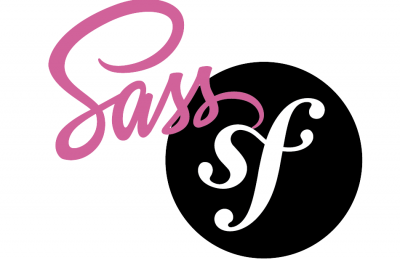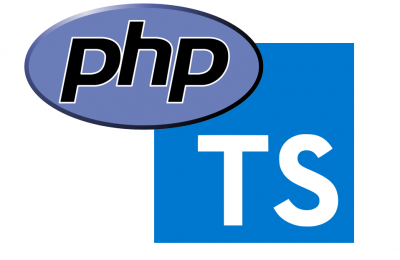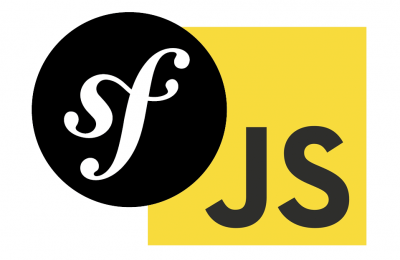PHP 7.2 will be launching soon, in fact it has already reached Release Candidate status. I was exploring Symfony Flex with Docker setup and thought I would do a quick round of tests to compare the differences in PHP 7.1 and 7.2 (RC4) regarding performance with a few benchmarks.
Written by Jani Tarvainen on Saturday October 14, 2017
Permalink -
Symfony Encore is a wrapper for the JavaScript module bundler Webpack. Webpack is used to manage Front End assets like JavaScript, CSS and image for browser consumption, often with conversion step from a source format like SASS. Encore provides an opinionated way to add Webpack to your Symfony projects.
Written by Jani Tarvainen on Saturday July 8, 2017
Permalink -
Earlier this year I did some experimenting with a Hybrid state object between Symfony Twig templates and front end JavaScript frameworks. Since that time I did that experiment, the Symfony Flex project has progressed. I thought I would try how to port the state prototype to Symfony Flex.
Written by Jani Tarvainen on Friday June 23, 2017
Permalink -
Translations continue to be a challenging topic in web applications. There are many methods, formats and terms for translating. While Symfony has quite a good set of translation tools, there are many formats and some gotchas that are easy to forget if you don't have a routine.
Let's take a look at a workflow that has worked for me with Symfony app localizations in 2017.
Written by Jani Tarvainen on Sunday April 9, 2017
Permalink -
Most developers I know should be classified with the trendy word polyglot. Polyglot means a person that speaks multiple languages, where as for developers they're programming languages. Even if you consider yourself as a PHP developer, you're likely more diverse.
Programming languages rise and fall in relevance, so your skillset and routine varies over time - depending on trends as well as the line of work you're in. Let's take a practical look at why you might find TypeScript a worthy language to use in 2017 and beyond.
Written by Jani Tarvainen on Sunday February 5, 2017
Permalink -
Tags:
php, typescript, javascript
Front end development has certainly grown up in the last few years. UI logic is increasingly being moved to the client side, but the traditional server-rendered views aren't going anywhere soon. And they shouldn't.
The two methods will live alongside each other and you'll have to work with two worlds. Let's explore an idea how to make this pleasant to work with, by sharing state between Twig templates and JavaScript.
eCommerce is one of areas of web development where quality and reliability directly affects your bottom line. This is probably one of the reasons many eCommerce software vendors have adopted Symfony. OroCommerce is one of them has reached a 1.0 release.
Written by Jani Tarvainen on Thursday January 19, 2017
Permalink -
Symfony is a significant effort in itself, but because it offers a stable platform for other project to build on - many know Symfony through other high profile projects like Laravel or Magento. But these well known projects are only a tip of the iceberg. Some interesting options utilising Symfony are WellCommerce and the ONGR projects.
Written by Jani Tarvainen on Sunday December 18, 2016
Permalink -
PHP 7.1 was launched on December 1st 2016. This was the first minor release after the release of 7.0 a year ago. PHP 7.0 was a revolutionary product, especially when it comes to memory usage and performance. PHP 7.1 is a more modest upgrade that brings new features and improved performance. But how much has performance improved from a year back?
Written by Jani Tarvainen on Friday December 9, 2016
Permalink -
The Symfony project produces both decoupled components as well as a full stack PHP framework based on these components. The components have been a success with wide adoption and so has the framework, bringing structure that scales to enterprise complexity.
What Symfony has been lacking is tooling for Rapid Application Development (RAD), with minimal overhead for prototyping, etc.
Written by Jani Tarvainen on Saturday December 3, 2016
Permalink -
Web development is a relatively fast moving industry. Technologies come and go, and while many of them are definite improvements - some are fads that don't have a long shelf life. Perhaps the biggest underlying issue is that developers often don't even take the time to learn a particular technology before moving on to the next one.
Written by Jani Tarvainen on Tuesday November 29, 2016
Permalink -
The team working on the PrestaShop eCommerce platform launched 1.7 on November 7th 2016. This is the first publicly available version which is includes the Symfony Framework by default.
Written by Jani Tarvainen on Saturday November 12, 2016
Permalink -
PHP 7.0 made significant improvements in terms of performance and memory use for real applications. Many applications deliver twice the throughput with much less memory just without any changes to the application code.
But with networked API driven architectures individual response times are increasingly critical for end-user experience. Luckily, there are quite a few unbeaten paths for regarding PHP performance.
Written by Jani Tarvainen on Monday October 17, 2016
Permalink -
GraphQL is a technology that allows developers to make queries (and mutations) against an external interface in a structured way. It is similar to REST APIs, but as a more complete specification it is universal and allows true decoupling from a CMS, rather than building on a specific REST implementation of a system.
Written by Jani Tarvainen on Tuesday October 11, 2016
Permalink -
The CQRS/ES pattern pair has been discussed widely in mainstream PHP development circles from mid 2015. There are a number of libraries and the pattern is being applied in at scale in production environments. So the concepts here are certainly mature and ready.
Rightfully, many warnings are issued for not using CQRS/ES together for everything. But let's now consider how relevant it could be for the bulk of web development, using Content Management Systems (CMS).
Written by Jani Tarvainen on Tuesday October 4, 2016
Permalink -
Symfony2 just turned five years old some months ago. This is an eternity in the web world and you average technology stack has likely grown in complexity since then. In addition to the standard components in LAMP you'll likely be peddling with a number of complementary technologies.
Written by Jani Tarvainen on Tuesday September 20, 2016
Permalink -
Accelerated Mobile Pages is an initiative from Google to speed up mobile browsing. AMP is an open standard based on HTML. It enforces performance by limiting functionality and includes remote caching.
Given Google's continuing dominance search both publishers and CMS vendors need to take AMP into account. In this article you'll learn the basics of how to implement AMP with eZ Platform CMS and Symfony.
Written by Jani Tarvainen on Saturday August 27, 2016
Permalink -
Tags:
cms, amp, ezplatform
With the summer coming to an end there is increasing activity in the Symfony community in the form of bundles. Recently four interesting Symfony bundles have had interesting status updates: EasyLogHandler, eZ Migration Bundle, Netgen Layouts and Sylius.
Written by Jani Tarvainen on Friday August 19, 2016
Permalink -
Tags:
sylius, symfony, ezplatform
Serverless Architectures are the hottest thing right now. Not a lot of people know exactly what they are and if they really need them, but everyone's onboard because they're afraid they're left behind.
The largest players for serverless platforms are Amazon, Google and Microsoft, but now a small player, Zeit, allows Dockerfile based serverless deployments.
Written by Jani Tarvainen on Monday August 15, 2016
Permalink -
Tags:
php, docker
During the first half of 2016 the web development community has talked about Docker quite a bit. The technology has been around since 2013, but during the last few months it has matured and started being adopted for mainstream web development. Docker is a great fit for Symfony projects too.
Written by Jani Tarvainen on Friday August 12, 2016
Permalink -
Tags:
docker, symfony, php



